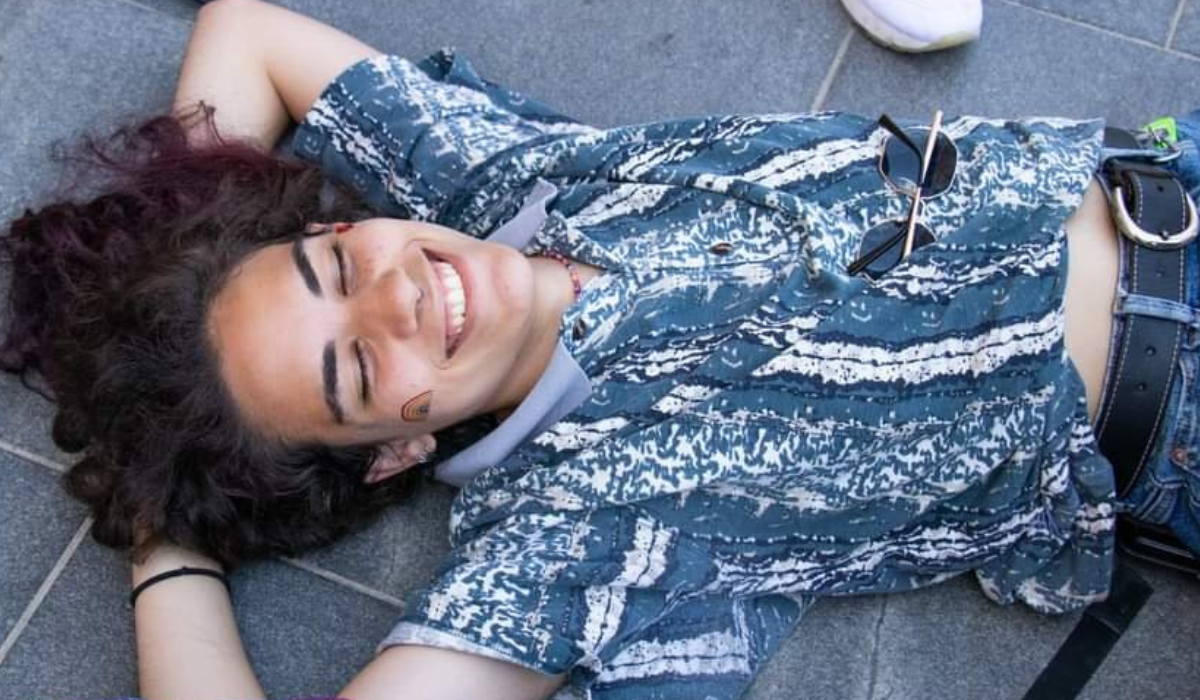Personal, ever-changing and ongoing: the journey to recovery

Nowadays I realise the importance of allowing yourself to feel whatever emotion you need to feel and to ask for help. Following a challenging mental health journey, I now truly understand that no one can read your mind. When you are good at hiding things, it is difficult for others to know what you’re going through. This is especially true in societies where wellness is equated to success – academic, financial, social, etcetera – thus ignoring the existence of high-functioning mental ill-health (people who may externally be performing successfully at school, work, or other aspects of life but have mental health challenges).
While not easy, acknowledging and opening up about one’s mental health is often the first step. Throughout my life, I have been diagnosed with anxiety, depression, anorexia, complex-PTSD, and borderline personality disorder. On the one hand, these labels have helped me to classify my symptoms, to find communities, and to seek the appropriate help. However, such labels have often felt extremely de-humanising. These diagnoses can result in losing your sense of identity, leaving you to question what part of you is not a diagnosis.
Living with mental ill-health
Every label has affected me in its own way, and a diagnosis of multiple mental health conditions created a chaotic mix of thoughts, feelings, and behaviours. My depression left me feeling hopeless, purpose-less, emotionless. It also made it impossible to enjoy the activities and people who once painted my life in colourful hues. Instead of feeling alive, I felt numb; believing there was no way out of the dark hole that I was in.
Combining this with generalised anxiety meant that I lacked motivation, and courage, to get out of bed, take care of my personal hygiene or socialise. My life ended up being ruled by insomnia and anxiety attacks. This vicious cycle resulted in an inability to rest, an overworked mind, and continuous imagining of scenarios that existed only in my mind and never became reality. Anxiety traps you in a chaotic, dramatic world in your head and stops you from living in the present moment. Simultaneously having anxiety and depression meant that there was a constant internal battle in my mind, which resulted in me caring about both everything and nothing at the same time. Add anorexia to the picture and you get an internal voice telling you that eating food will make you even more worthless. The simple thought or sight of food left me feeling nauseous. To me, anorexia was rooted in a hatred of myself, deep enough to make me believe that I did not deserve the nourishment needed to be kept alive.
Dealing with my mental health has been a never-ending journey. Once I got better at dealing with my depression and anxiety, my diagnosed complex-PTSD and borderline personality disorder stood out even more. I was told that it was not “the norm” to continuously experience such contrasting, intense emotions every day while also feeling so disconnected from my emotions with a constant, unexplainable emptiness. Eventually, I could no longer sleep in my bed because of the excruciating sensation of burning on my skin every night. These are just a few examples of what my daily life was as my entire being became more exhausted.
Mania crept in next, making every day an opportunity to defy basic human norms and standards. People would ask me how I am still standing and where I get my energy from. I wouldn’t sleep or eat and yet, I would do way more than what was possible in one day. My brain was in constant over-drive, and I didn’t care about what I was doing, as long as it gave me an adrenaline rush and I went over and above my limits.
Throughout all this, I realised how easy it is to feel like you do not deserve love and to try to fill the void by filling your life up to the brim with people and things to do. It is easy to cope with the emptiness and feelings of worthlessness by overachieving or being reckless. However, the harsh reality is that dealing with such feelings of emptiness and worthlessness often require spending time with yourself, reflecting and healing in your own way.
The road to recovery
There are always multiple ways to look at something. Don’t let yourself get stuck on one perspective and think that there’s no way out. This is how many mental health problems, especially depression, function. Recognise your triggers and breaking points. Recognise your unhealthy mental cycles and create new ones. Trust the process of life when you find it difficult to trust yourself. Find a friend: a person who will love and appreciate you for who you are, and not who they think you should be. There is not one right way to deal with the journey of recovery, it is unique for each of us but finding some type of balance is often the key.
My first taste of healing came from taking part in a “little therapeutic retreat” (not a formal retreat but self-generated) at home during the Covid lockdowns some years ago. For a couple of months, my life was simply multiple therapy sessions a week, which included 4 hours a day of journaling, an hour of walking and running, meditation, yoga and the rest of the time was dedicated to trying to restore broken relationships. Although this may not always be possible, I do think that creating some sort of balanced routine in one’s daily life can help. Spending time outdoors and surrounding yourself with people who support you and love you is definitely a catalyst to overcoming difficulties.
Do not be afraid to seek therapy or medication, even when others inform you that you appear to be fine. I laugh when I’m told that I have a calm exterior, yet I am also on anti-psychotics and anti-depressants. Sometimes the people that seem calm or laugh the most also suffer the most. Additionally, relapse is perfectly normal. The healing journey does not necessarily have a finite starting or end point, and that is absolutely OK.
You can either live being afraid of your mind or befriend it. You are not a label or a statistic. Learn your strengths and flaws and love them, precisely because they are yours. It has been a difficult journey but I would never change any aspect of my story and experience because it allowed me to discover true friendships and become in-tune with my inner strength. This is not just my story but many people’s story. Although recovery is hard, everyone deserves help, no matter what. Be ready to ask for and accept help, even when you’re not sure you need it. Let us not wait for people to be on the verge of suicide to help them. Let us break the stigma of mental ill-health and spread more love.
The Author
 Antonella Bugeja (they/she) is a 21-year-old advocate pursuing their Masters degree in Neuroscience. A Maltese youth activist in a year-long pan-European Campaign ‘Stand For Something’, they gathered and voiced the youth’s opinions on important social matters. They also volunteer with various organisations, giving workshops on sexuality and mental health while creatively using art to raise awareness. You can find Antonella on Instagram, Twitter, LinkedIn and Facebook.
Antonella Bugeja (they/she) is a 21-year-old advocate pursuing their Masters degree in Neuroscience. A Maltese youth activist in a year-long pan-European Campaign ‘Stand For Something’, they gathered and voiced the youth’s opinions on important social matters. They also volunteer with various organisations, giving workshops on sexuality and mental health while creatively using art to raise awareness. You can find Antonella on Instagram, Twitter, LinkedIn and Facebook.
Stay connected
Get our latest news, personal stories, research articles, and job opportunities.